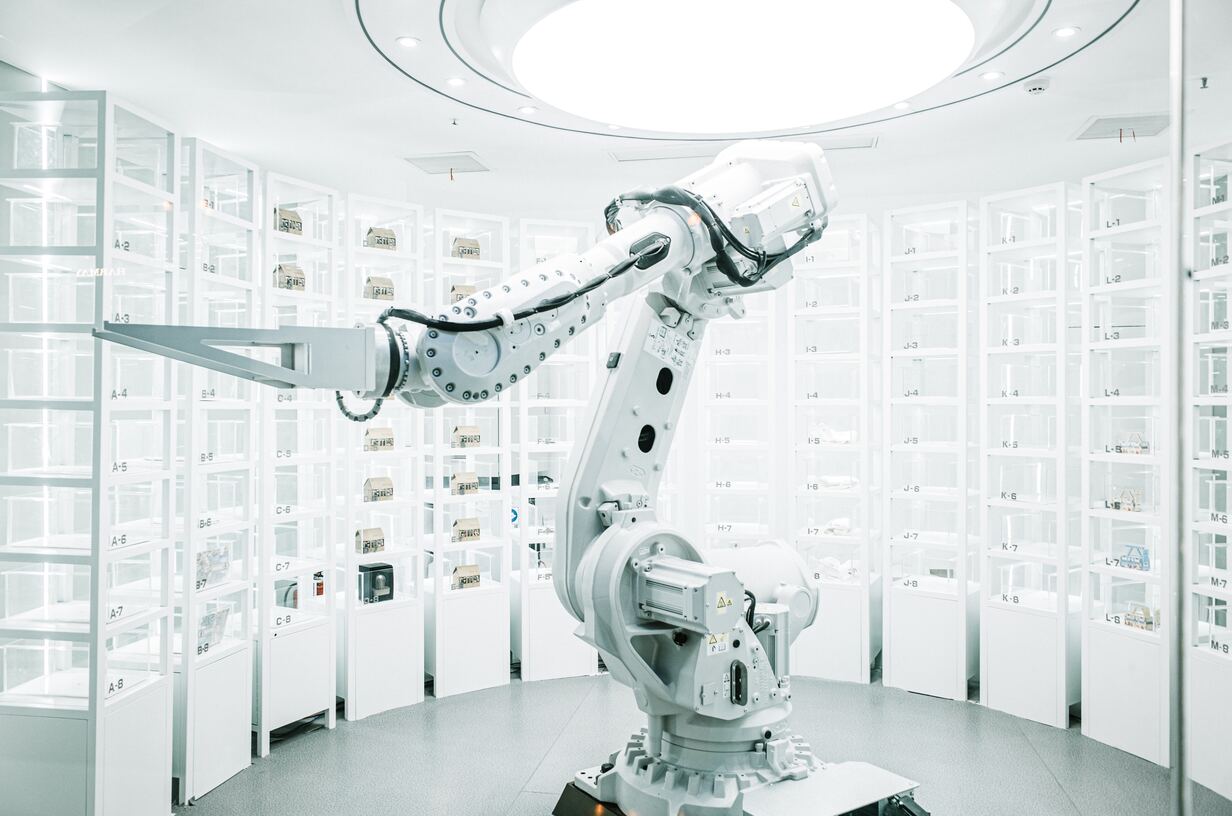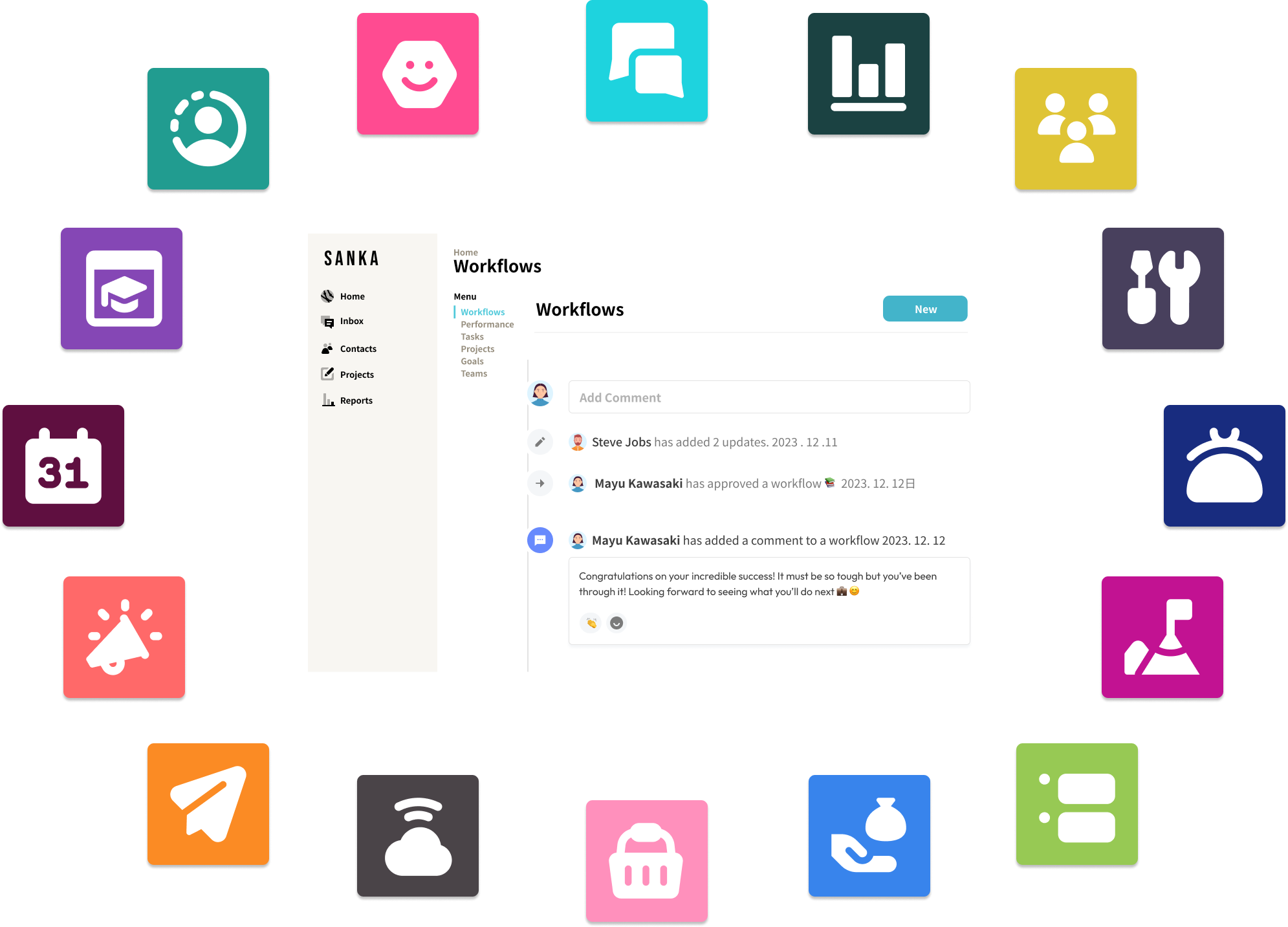What you will get from this article:
- Define the concept of Autonomous Enterprise
- Understand the benefits of Autonomous Enterprise
- Get a guide to becoming Autonomous Enterprise
Introduction
Digital transformation is the process of using digital technologies to fundamentally change how businesses operate and deliver value to customers.
It is important because it enables businesses to stay competitive in the ever-evolving digital landscape.
However, the ultimate goal of digital transformation is to become an Autonomous Enterprise.
Autonomous Enterprise is a concept that describes the ultimate goal of digital transformation: an organization that has been completely transformed through AI and machine learning into an autonomous entity that operates at peak efficiency, with minimal human intervention.
In this article, I'll discuss what it means to be an Autonomous Enterprise and why you should care about becoming one.
What is Autonomous Enterprise?
Autonomous Enterprise is a business that uses AI to make decisions. It can be a single person or an entire organization.
The Autonomous Enterprise is a business that uses advanced technologies such as artificial intelligence (AI), machine learning (ML), and automation to operate independently, without the need for human intervention.
It is a self-driving enterprise that can make decisions and take actions on its own, based on real-time data and insights.
They don't need humans because they learn from past mistakes instead of repeating them over again - this saves time by eliminating steps such as manual analysis which would otherwise take place before making decisions about how best to move forward with certain projects/problems.
This concept isn't new; it's been around for a long time and has been achieved by some organizations who have implemented it successfully enough that they have been able to scale up their operations while reducing costs and increasing profits.
Autonomous Enterprises are able to make accurate predictions about future events based on historical data from previous experiences with similar situations or circumstances.
What are the Benefits of Autonomous Enterprise?

The benefits of becoming an Autonomous Enterprise are numerous. According to a Forbes article, an Autonomous Enterprise can reduce costs, increase efficiency, improve customer experience, and drive innovation.
For example, the Royal Bank of Scotland (RBS) has implemented an AI-powered chatbot that can handle customer inquiries and requests, reducing the need for human customer service representatives.
This has resulted in faster response times, improved customer satisfaction, and reduced costs for RBS.
Autonomous Enterprise is a business model where artificial intelligence (AI) is used to automate the entire value chain. This can be achieved by using AI to make decisions for the entire value chain, or by using it to make decisions on behalf of employees at all levels of your organization.
Autonomous Enterprise has several benefits:
- It increases efficiency and productivity by automating processes and eliminating human error.
- It helps you adapt faster than your competitors because no time is wasted on repetitive tasks that machines can do better than humans (such as collecting data).
Why Become an Autonomous Enterprise?
Autonomous Enterprise is the next step in digital transformation.
By using advanced technologies to operate independently, businesses can reduce costs, increase efficiency, and improve customer experience.
This can help them stay ahead of the competition and drive innovation. Additionally, becoming an Autonomous Enterprise can have a positive impact on employees, customers, and stakeholders.
For example:
You have an autonomous enterprise when you can use AI (artificial intelligence) to automate mundane work tasks like scheduling meetings or booking flights.
This frees up your employees to do more creative thinking--and it saves time for both parties!
For employees, becoming an Autonomous Enterprise can mean less repetitive and manual work, giving them more time to focus on higher-value tasks.
For customers, it can mean faster response times, improved service, and a more personalized experience. For stakeholders, it can mean increased profitability, improved brand reputation, and a more sustainable business model.
How to Become an Autonomous Enterprise

Becoming an Autonomous Enterprise is a complex process that requires careful planning and execution. Here is a step-by-step guide on how to achieve this status:
In order to become an autonomous enterprise, you need to understand how AI affects your organization at every level: business process, business model, and organization.
- Assess your current state: Before you can become an Autonomous Enterprise, you need to assess your current state. This involves identifying your strengths and weaknesses, as well as your current level of digital maturity.
- Define your vision: Once you have assessed your current state, you need to define your vision for the future. This involves setting goals and objectives that align with your business strategy.
- Develop a roadmap: With your vision in place, you need to develop a roadmap that outlines the steps you need to take to achieve your goals. This should include a timeline, milestones, and metrics for success.
- Invest in advanced technologies: To become an Autonomous Enterprise, you need to invest in advanced technologies such as AI, ML, and automation. This may involve partnering with technology vendors or building in-house capabilities.
- Build a culture of innovation: Becoming an Autonomous Enterprise requires a culture of innovation. This means encouraging experimentation, learning from failure, and embracing change.
- Continuously improve: Finally, becoming an Autonomous Enterprise is an ongoing process. You need to continuously monitor your progress, measure your success, and make adjustments as needed.
How can your organization implement a digital transformation strategy to maximize the impact of AI on your business process?

AI is a tool, not a solution. AI can only be as good as the data it's trained on. AI is not a replacement for human talent or judgment.
It's important to remember that AI is just one part of digital transformation and can't do everything for you by itself.
You need people in your organization who understand how to use it effectively, but also have creativity and expertise in other areas such as product development or marketing strategy so they can match up with what AI can do best: automate repetitive tasks that take up time from employees who could otherwise be using that time more wisely elsewhere within their teams or companies at large (e., creating new products).
6 Examples of Autonomous Enterprise Models

Autonomous enterprise is a business model that leverages artificial intelligence and automation to operate independently, reducing the need for human intervention.
This emerging trend is becoming increasingly popular in the current business landscape as it offers numerous benefits, including improved efficiency, cost savings, and enhanced customer experiences.
Here are six examples of autonomous enterprise models that showcase their unique features and benefits.
1. Tesla
Tesla is a well-known example of an autonomous enterprise that uses AI and machine learning to improve its electric vehicles.
Tesla's autopilot feature uses sensors and cameras to detect and respond to changes in road conditions, allowing the car to drive itself.
This feature has led to a significant reduction in accidents, making Tesla's cars some of the safest on the road.
Furthermore, Tesla's autonomous enterprise model has allowed them to release regular software updates that improve the car's performance, without the need for physical upgrades.
2. Zara
Zara, a fashion retailer, uses autonomous enterprise technology to improve its supply chain management.
The company uses AI to analyze customer data and predict fashion trends, which informs its production process.
This technology has allowed Zara to reduce its lead times significantly, from concept to product delivery, and improve its inventory management.
As a result, Zara can quickly respond to market demands, reduce wastage, and deliver new products to customers faster.
3. Amazon
Amazon is a leader in autonomous enterprise technology, using AI and machine learning to automate its warehouses and improve its delivery processes.
The company uses robots to move products around its warehouses, reducing the need for human intervention.
Furthermore, Amazon's delivery drones can deliver packages to customers in under 30 minutes, improving the customer experience and reducing delivery times.
4. Uber
Uber is an excellent example of an autonomous enterprise that has disrupted the traditional taxi industry.
The company uses AI and machine learning to match drivers with riders, optimize routes, and predict demand.
This technology has allowed Uber to reduce wait times, improve the customer experience, and increase efficiency.
Additionally, Uber is investing heavily in autonomous vehicles, which could further reduce costs and improve safety.
5. IBM Watson
IBM Watson is an AI-powered platform that offers a wide range of services, including natural language processing, machine learning, and data analysis.
The platform is used by businesses across various industries to automate processes, improve decision-making, and enhance customer experiences.
For example, Watson can analyze customer data to predict their needs, automate customer service, and provide personalized recommendations.
6. Nest
Nest is a smart home technology company that uses AI and machine learning to automate and improve home management.
The company's products, including thermostats, cameras, and doorbells, can learn from user behavior and adjust settings accordingly.
For example, Nest's thermostat can learn when users are home and adjust the temperature accordingly, reducing energy consumption and costs.
Furthermore, Nest's products can be controlled remotely, providing users with greater convenience and peace of mind.
Conclusion
Becoming an Autonomous Enterprise is the ultimate goal of digital transformation.
By using advanced technologies to operate independently, businesses can reduce costs, increase efficiency, improve customer experience, and drive innovation.
To achieve this status, businesses need to assess their current state, define their vision, develop a roadmap, invest in advanced technologies, build a culture of innovation, and continuously improve.
AI is an important tool for businesses, but it's not the only one. You need to understand how it fits into your company's overall digital transformation strategy.
This will help ensure that you're using AI in ways that will have a real impact on your business process, not just because it sounds cool or trendy.








